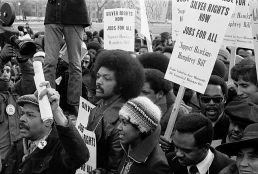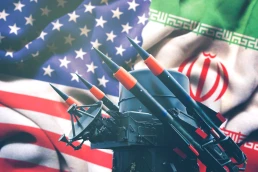Former private soldiers say this new way of war — unofficial boots on the ground — could go sideways, while giving governments political cover.
By Stavroula Pabst, Responsible Statecraft
The notion of sending private contractors to Gaza has been floated numerous times, to mixed-to-poor reviews. Last year, National Security expert Peter Singer dismissed the cause as “not even half baked.” More recently, a retired military official told RS it was a “bad, bad idea.” Even Washington Post columnist David Ignatius described the concept as “potentially controversial.”
Despite the disquiet, U.S. private contractors are ultimately going to Gaza to work on checkpoint and security maintenance as part of a multinational consortium created pursuant to the recent ceasefire and hostage deal. The consortium, according to Axios, is to facilitate Palestinians’ return to north Gaza while preventing possible weapons flow in the same direction.
Two American contracting outfits are involved. The first, Safe Reach Solutions (SRS) drew up operational plans for a key checkpoint between southern and northern Gaza. The second, UG Solutions, has been assigned to help staff it — company emails say that armed guards will carry out “internal vehicle checkpoint management and vehicle inspection[s]” there.

For this mission, UG Solutions is offering a daily rate of at least $1,100 to personnel (at least 100) it sends to the enclave — along with a $10,000 advance. Contractors have reportedly already been deployed.
The introduction of private contractors is apparently critical to the success of the ceasefire, as Israel’s earlier demands to have IDF forces staff the checkpoint were reportedly holding up previous attempts to broker a deal. But former private military contractors who spoke with Responsible Statecraft say the practice of privatizing military and security-related affairs poses a number of risks to the contractors while allowing governments — in this case, the United States and Israel — to forgo putting their own military on the ground.
Furthermore, these experts say, the private military industry in general — thanks to the built-in profit incentive and overarching opacity of its operations — lends itself to exacerbating and prolonging violence and conflict, not restraining it.
Recent Posts
Elite Depravity in Imperial Decline, A Zero Hour Conversation With Richard Wolff
February 20, 2026
Take Action Now “The system self-selects for psychopathy… the most sociopathically obsessive competitor and accumulator of personal power and…
Economics of Health For All: The Plan to Put Health at the Heart of the Global Economy
February 20, 2026
Take Action Now At the World Health Assembly in May, member states may endorse an unprecedented strategy declaring that health is not a cost – but…
The Left Owes a Lot to Jesse Jackson
February 19, 2026
Take Action Now As a movement builder, spokesperson, and candidate for the presidency, Jesse Jackson’s accomplishments were massive. He was one of…
Trita Parsi Warns U.S. & Iran Have Incentives to Escalate Conflict
February 19, 2026
Take Action Now “We have a very dangerous situation, because both sides actually believe that a short, intense war may improve their…




